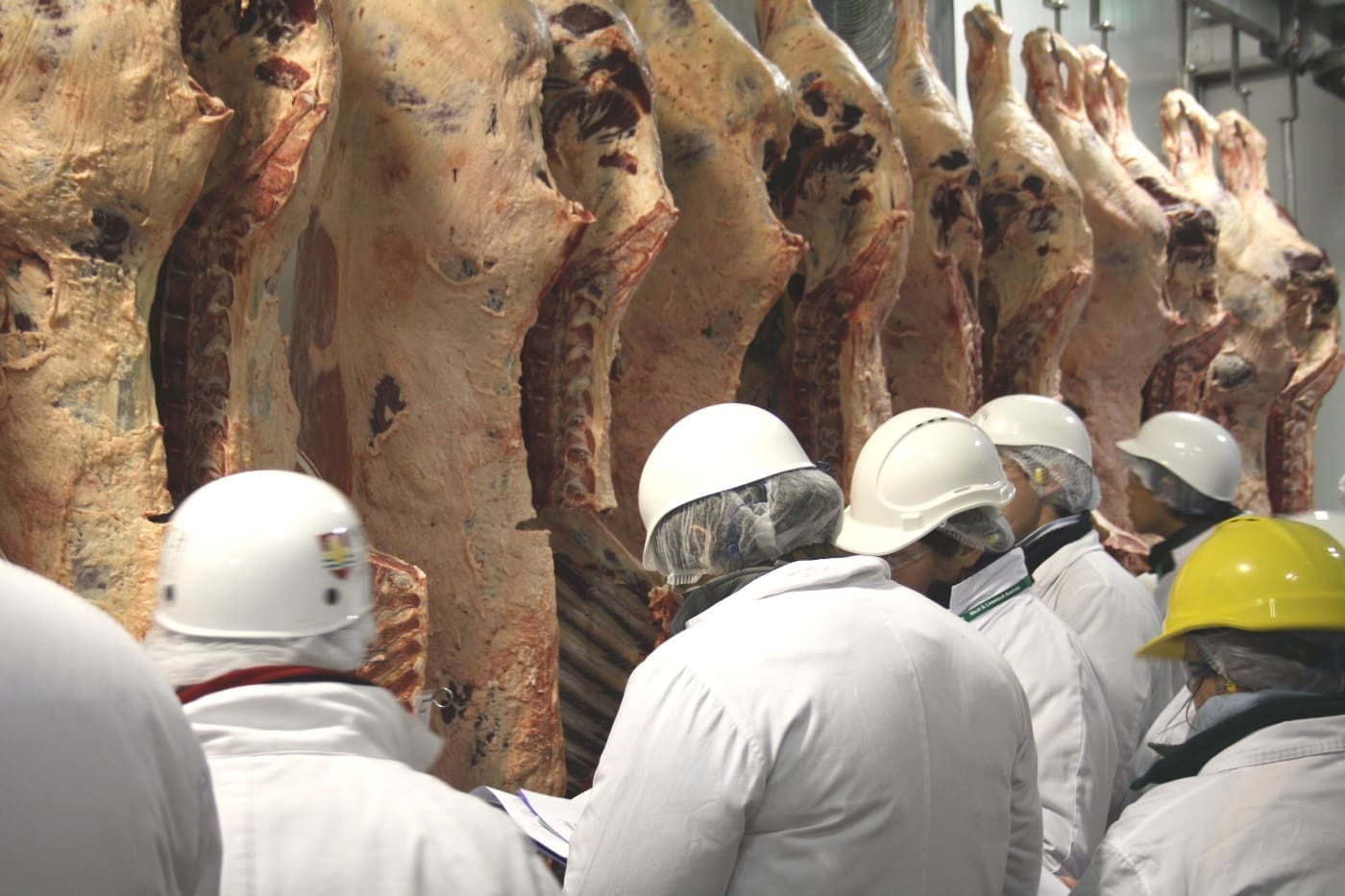Latest listings on Jobs Central:
- Feedlot Livestock Hands, Pen Riders – Opal Creek & Brindley Park
- Feedlot Livestock Manager, Brindley Park – ACC
- Assistant Manager – Amungee Mungee Station
- Meat Processing Workers, Moe – Greenhams
- Meat Processing Workers, Tongala – Greenhams
- Feedlot positions, Springsure – Allied Beef
- Engineering Manager – Northern Cooperative Meat Co, Casino
- Overseer and Station Hand, King Island – TRT Pastoral
- Weighbridge & Admin Officer, Grassdale – Mort & Co
- Computer Programmer/Web Developer – Angus Aust
Click here to access these and other exciting meat and livestock supply chain jobs currently listed on Jobs Central.

THE changing nature of the red meat processing industry means there is a greater need today than ever before to recruit university graduates to fill an expanding range of working roles within the sector.
Speaking at the recent meat processing training conference on the Gold Coast, MINTRAC senior project officer Clive Richardson highlighted the growing need for graduate recruits in red meat processing.
He said there were a range of technical needs within the sector that continued to grow, covering fields like information technology, electronics, automation, food technology, human resource management, compliance management and supply chain management – all of which required specialist tertiary skills.
Industry previously relied on ‘growing its own’
Mr Richardson said historically, the red meat processing industry had built its talent and competency base on the principle of ‘Growing its own,’ but much had changed over the years.
“What has changed with our talent pool at work?” he asked.
“In many processing plants, the number of Australian citizens and permanent residents on the pay roll has decreased dramatically, meaning there is a smaller pool to recruit managers from,” he said.
“There has also been an increased drain of talent away from the industry, into other fields.”
Mr Richardson provided some interesting education statistics, comparing the 1970s with 2019:
- Just two percent of the overall population held university degrees in 1970. In regional areas (where red meat processors tend to operate) that figure was closer to 1pc. “It means there were a lot of smart guys standing on the slaughter floor,” he said.
- In 2019, 38pc of Australia’s population aged 25-34 have degrees, while in the regions that figure is closer to 20pc.
Mr Richardson said the number of universities in Australia had also changed, with 43 universities now in existence – 17 of which were located in regional areas, or which had regional campuses.
The number of regional universities had also grown, with Queensland alone now accommodating five regional universities across the state.
He said MINTRAC had become interested in opportunities with regional universities, with a Charles Sturt University project involving 16 under graduates undertaking the Certificate III and IV course in meat processing (Meat Safety), with cattle and sheep processing placements. A similar course with Federation University had 16 students, and both were producing good results to date.
“What do these students bring to the table?” he asked.
“Firstly, a work ethic that was surprising. Secondly, the vast majority of students come from and have chosen to live in regional areas and understand the advantages of a regional lifestyle. Thirdly, they have committed to and completed a course of study with timelines. They bring technical knowledge and a proven ability to learn,” Mr Richardson said.
Most regional universities now offered degree courses that prepared students in some area relevant to meat processing operations. Most courses required students to have an industry placement and/or an internship, so there was opportunity for the employer to ‘try before you buy.’
Most of these students will be looking for employment in their home towns or regions, many of which support red meat processing businesses.
“But we think these uni graduates will require a structured introduction to the plant, with a clear idea about where there employment will take them and over what time-frame,” he said.
He raised the possibly a cadetship program with rotation through a number of meat processing business departments to help graduates ‘learn’ the business. Remuneration would be equivalent to that offered by other employers in their field.
- MINTRAC is the industry organisation charged with developing training and professional development solutions to Australian meat industry businesses. MINTRAC is an independent national company at the forefront of innovation in skills and training, with strong links to industry, employees and registered training organisations. Its specific areas of capability include development of nationally accredited training, in particular the Australian Meat Industry Training Package; and development of high-quality national standardised training and assessment resources.

HAVE YOUR SAY